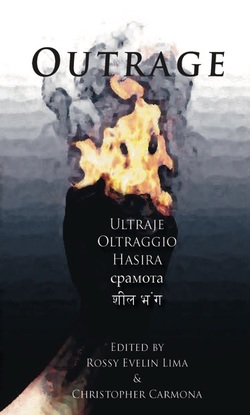Chuck Taylor, PhD, won the Austin Book Award for his work, What Do You Want, Blood? He worked as a poet--in-residence for the City of Salt Lake, in the poets-in-the schools program, and was a part-owner of Paperback Plus in Austin, operated Slough Press since 1973, and taught creative writing at Texas A&M/College Station, serving as its coordinator. He has published novels, books of poetry, story collections and memoirs. His two most recent books are a memoir called I tried to Be Free, and Being Beat, a book of poems, both from Hercules Press in Albuquerque, New Mexico. You can see some of his artwork here.
Be: There was a strong Chicano movement going on around the time you started the press and you seemed to concentrate on publishing Chicano and ethic literature. Did you start the press to specifically promote the under-represented?
CT: Yes I wanted to publish the marginalized, but in Texas but I found it hard to do. I didn't have a car, was raising kids, and was broke much of the time I had the press. Thank the muses later for grants from the Texas Arts Commission and from the Austin Book Award. Those institutions made it possible for me to publish books but what they liked was more middle ground. The Chicano movement, its first phase, was beginning to fade by 1975, in terms of media coverage. I read a lot of the writers and taught them in my classes at Angelo State from 1969-73.
Be: Slough started out as a magazine but after two issues you went to books only. What was the deciding factor to do only books?
CT: Magazines have a short shelf life. They are time based. Books have a much longer shelf life. Yet it takes just as much work to do a magazine as a book.
Be: Makes sense. Plus you can sometimes get grants for books?
CT: Yes, it is much harder to get grants for magazines. I don't think the Texas Arts Commission is giving out money for books anymore. The Austin Book Award is gone. I tried for an NEA once. When I didn't get it the writers were pissed at me, even though I told them publishing depends on a grant.
Be: I gather the press name continues because of others but I was wondering when you stopped being part of it. Also, does the press actively look for people to publish? Is Chris Carmona actively in charge now?
CT: Chris assures me he will be doing books soon. The last book I put out was in 2015. I am 78 now and plan to focus my remaining years on my own work.
Be: What were some of the accomplishments of the press that you’re most proud of?
CT: Pat Littledog’s Afoot in a Field of Men won the Austin Book Award in 1981. Later it was picked up by Atlantic Monthly and received a review in Time Magazine. Slough Press republished it in 2015. Pat got her MA in creative writing from UTEP, received an NEA Fellowship and was a Dobie-Paisano fellow.
I got a grant to publish Marion Winik's Boy Crazy, her first fiction title. Her second book, a memoir called Telling, is the book that brought her fame. (Marion Winik is a journalist and author, best known for her work on NPR's All Things Considered.)
A few others we published: Sheryl St. Germaine, from Lousiana, Ken Fontenot also from Louisiana, Octavio Quintaanilla (who was San Antonio poet laureate), Jerry Craven. Fred Asnes and Dan Durham and of course Ricardo Sanchez have passed away. About 50 books total.
Be: Do you have any stories to relay about Ricardo Sanchez? He was brought to my house when I was working on the El Paso Literary Festival, early 90s. Not long after that I heard he had stomach cancer. (The poet Maya Angelou described his work: “Ricardo Sanchez is like any great poet. He’s at once a preacher, a teacher, a priest, a rabbi. He’s a guru, he’s a master...”)
 |
| Ricardo Sanchez |
CT: Ricardo and I hung out a lot. By accident, he was in El Paso when I was in El Paso, and then he was in Salt Lake City when I was in Salt Lake, and then he was in Austin when I was in Austin. When he was really down and out Ricardo and his family lived in the basement of our bookstore, Paperbacks Plus. Later, he opened with our main supporter Paperbacks Y Mas in San Antonio. I also published Jose Montalvo, who sadly died of cancer. One writer I published killed himself. Ricardo and I got to know each other's families. I hung with him some in bars. The first time I met him was at an artistic bar in downtown El Paso called Tire Biters. He came in to read with maybe eight Brown Berets with him. Since Slough Press is now mostly located in the valley it has published more Latinx texts, thanks to Chris Carmona.
Be: Any comments on the state of publishing today?
CT: For independent presses focusing on the literary, it has never been easy. Thanks to POD, better looking books that may include photographs can be done well and inexpensively. Thanks to POD, one does not have to pay state, local, and federal taxes on unsold inventory because there isn't any. Slough Press is the oldest operating small press in Texas. Writers you publish often become friends. Publishing brings unexpected gifts to treasure a lifetime. I'll never forget when a check came from B. Dalton Books (now gone) that allowed me to pay my overdue rent. We had great celebratory parties, one in Kern Place in El Paso for collating, another on N. Oregon at Hal Marcus' gallery-home to sell copies.




